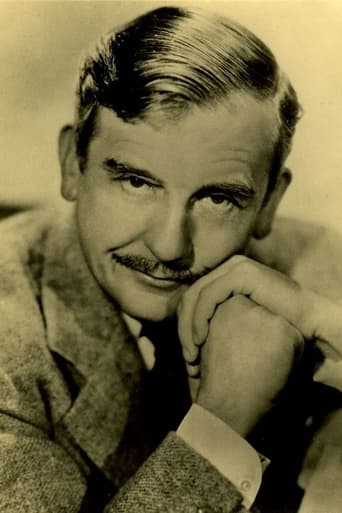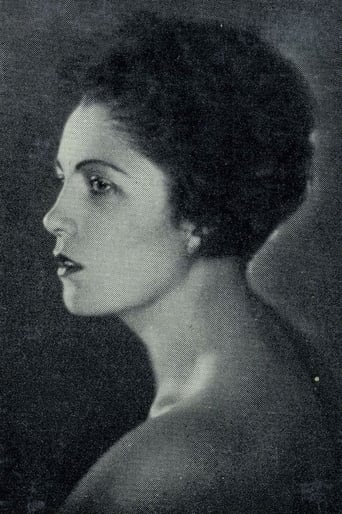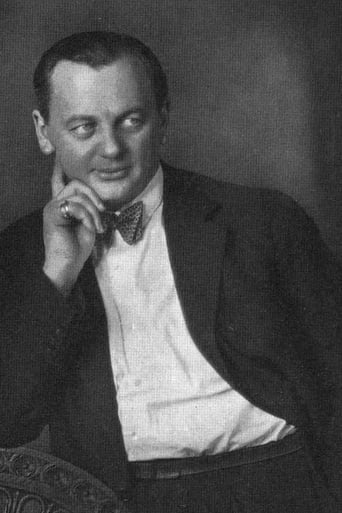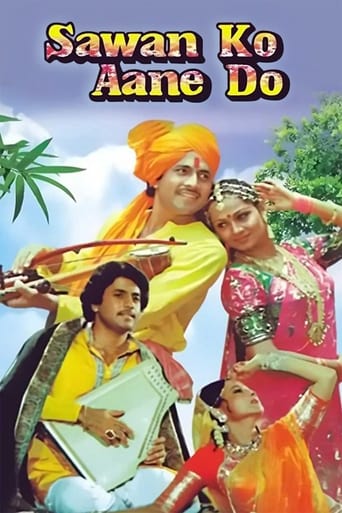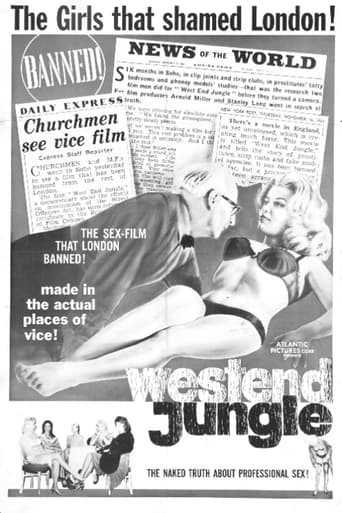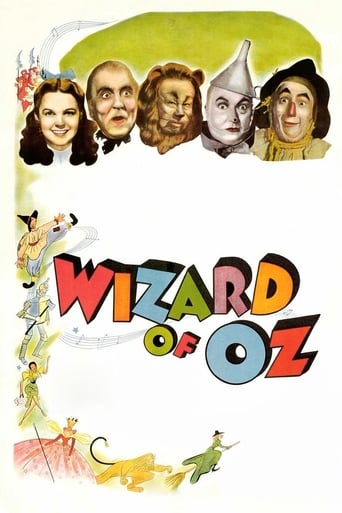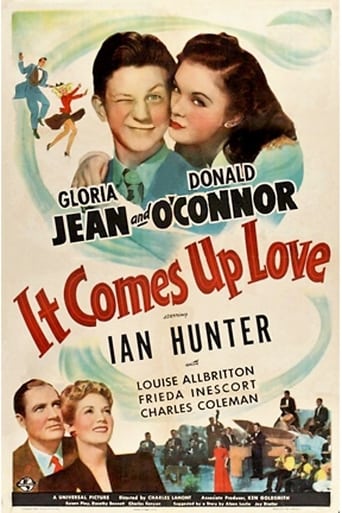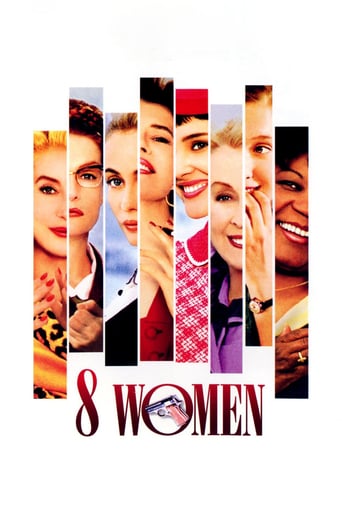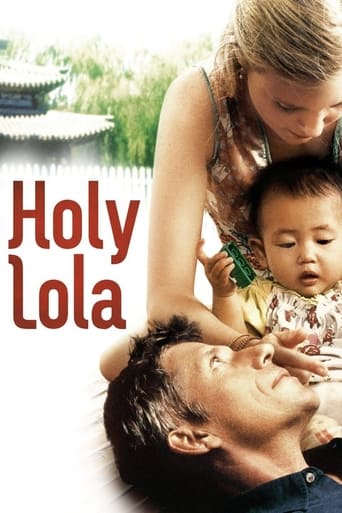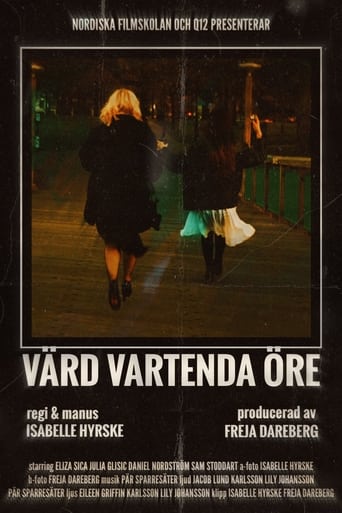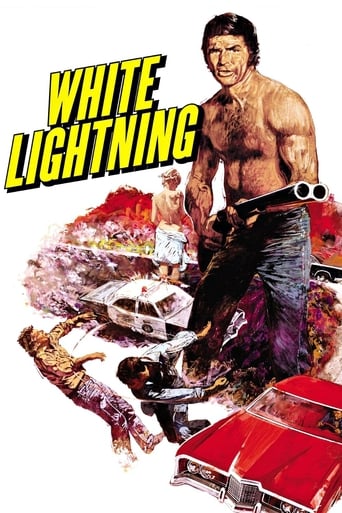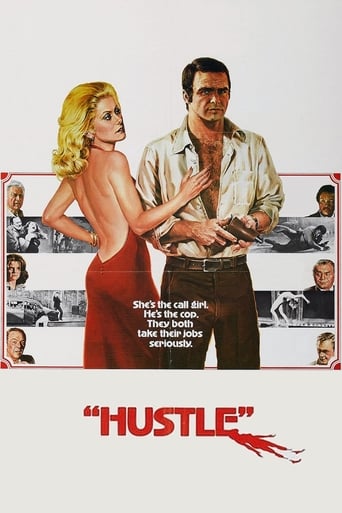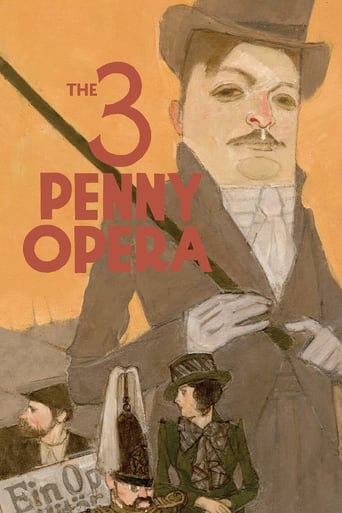
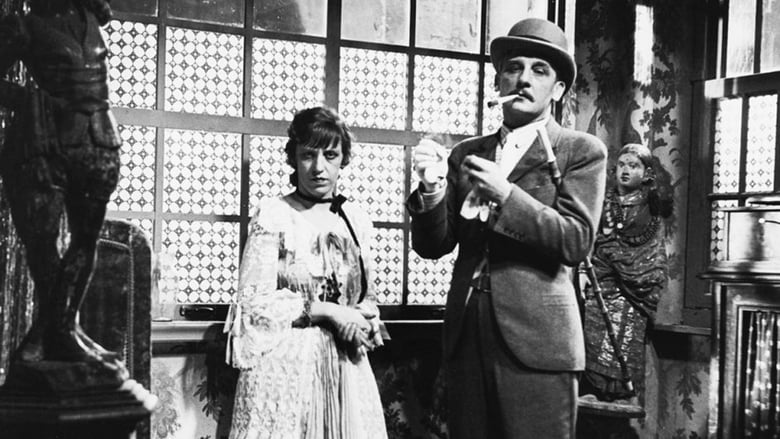
The 3 Penny Opera (1931)
In London at the turn of the century, underworld kingpin Mack the Knife marries Polly Peachum without the knowledge of her father, the equally enterprising 'king of the beggars'.
Watch Trailer
Cast


Similar titles
Reviews
GW Pabst's The 3 Penny Opera is ostensibly the story of a the conflict that arises when master burglar (and leader of a burglar guild) Mack the Knife marries Polly, the daughter of Peachum, the head of the guild of beggars. Though he prides himself in being the "Poorest man in London," Peachum is actually a very wealthy man who exploits the poor and and perpetuates their misery with his brutally efficient and dehumanizing industrial methods. Yet at the same time, Peachum deludes himself into thinking that he's a respectable man and this gives him a sort of bourgeois dislike for the more straightforward criminal activities of Mack the Knife and his cohorts. Almost from the beginning, however, it's clear that the film isn't really about romance or even a feud between rival guilds. Rather, this is a film about a deeply flawed society and the way it sustains itself. Pabst glosses over the romance between Mack and Polly while simultaneously emphasizing the artificiality of the proceedings, specifically with interludes from the type of narrator familiar from stage plays. This serves to accentuate the artificiality of the behavior of Peachum and police chief Tiger Brown, the two authority figures of the narrative, both who only pretend to have the best interests of the common people at heart. In reality, Tiger Brown is happy to pay his respects at obvious criminal Mack's wedding and easily cowed into doing the bidding of Peachum, who plans to use his army of poor beggars to embarrass the chief if he doesn't join Peachum's cause. At the same time, the burglar's guild uses their ill-gotten gains to purchase a bank with the implication that it's more efficient to rob people this way than by breaking into their homes. Beset on all sides with enemies, the poor are left with very little outlet and jump at the chance to strike out against their oppressors, though they fail to realize just how close those most responsible for their plight are and are thus led by Peachum and not against him. At the end they fail to make any progress and it seems things will continue as usual, with very little chance for the poor to better themselves. At the same time, their oppressors end the film with more solidarity than ever. Pabst is more than equal to his task as director here and he manages to create some striking images, particularly when he pulls into artfully composed close-ups of individuals or small groups, as when Peachum masterfully stirs up his followers or helplessly attempts to stem their tide. Further, he's clever enough to use the fact that this is adapted from a stage play to his advantage as turns the artificiality to his own purposes. In his use of artificiality to suggest the deterministic nature of industrial society, the film reminds me of Joe Wright's recent adaptation of Anna Karenina, though this film is a bit more subtle and much less stylistically over the top.
It is hard to be subjective about a film when the academy award winning editor, Jean (Hans) Oser, was a former of professor of mine when taking film classes some 40 years ago at the University of Saskatchewan, Regina Campus. Jean spent some 40 hours discussing this film in great detail I will address this film strictly for the technical expertise. It is a seamlessly edited film that flows in a way that audience is fully informed as to the direction it takes. Although not superbly acted, the direction keeps the film flowing in a well calculated and orderly manner.Whether or not the film is worthy of viewing for content, that I will leave to the viewer. I was mesmerized but it is a biased comment because I was equally mesmerized by the talks of a major part of the production team.
While the Criterion DVD version of this film has great picture and sound quality, that doesn't address the movie's primary failure -- it does not resemble the play. Most of the music is gone. What's left has either been shortened or rearranged. Most notably, it's not the same story. Others have commented on the altered ending. Also, the relationship of Polly and Mackie, which was presented as true love in the play, has become a cavalier, defiant, almost frivolous encounter.While the play had a significant amount of comedy, the movie has substituted physical slapstick for comedic dialog. The play also had some earthy lines that were probably too strong for a movie, and a political message that the movie determinedly avoids.There are some great CD recordings of the play, including a 1958 version with Lotte Lenya. Listening to one of those while reading the English translation is a lot more satisfying than the movie.
Those who acquired a taste for 1920s Berlin in 'Cabaret' ought to see this film inasmuch as it is the real thing. Lotte Lenya (Weill's wife in real life and the actress who played the evil Rosa Kleb in 'From Russia With Love') and Carola Neher (fled Hitler for the Soviet Union then betrayed by communism -- she died in a communist prison camp in 1942) each offer an unforgettable singing performance. Carola Neher's song alone is worth the price of admission -- she outclasses even Dietrich.


